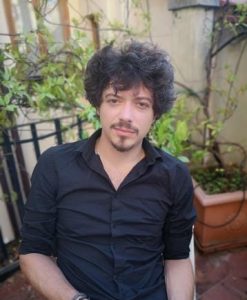Course description. The course aims to problematize politics as a practice of contestation that engages with the meanings of modern historical events. Combining approaches from political theory, intellectual history, and social theory, it introduces students to various academic and public discussions on wars, revolutions, modalities of peace, and their political interpretations. To do so, the course reconsiders uncertainty as the key quality of historical events, which manifests both in the course of their development and in later reinterpretations. The course intends to introduce students to critical work with historical sources and master the critical analysis of texts, debates, and events.
Contents. There is war. Since Russia’s full-scale invasion of Ukraine, this fact war bears a character of absolute certainty. While the existence of war leaves no place for doubt, all its concrete dimensions are anything but self-evident. However, as one steps back from this immediate data, the certainty of war gives way to the uncertainty of its political interpretations. When did this war begin, in 2022 or 2014? And if it started in 2014, was it in February, May, or August? Will it ever end; if so, when and at what cost, and how long can it last after it ends? Through a combination of case studies in modern and contemporary history, the course opens diverse perspectives to problematize the uncertainty of war and grasp its underlying political content. The first section draws on the nineteenth and twentieth-century history of Ukraine to thematize the beginning and the end of the war as an object of political action and interpretation. The second examines the competing causes and finalities of fighting through the lens of civil wars and outbursts of revolutionary violence. The third approaches uncertainty as a strategic resource in warmongering and peace negotiations. The fourth and last section discusses how anticipations and attempted regulations of the future under the threat of war.
Learning activities and teaching methods. Every session will consist of three parts. First, with the guidance of the course directors, students will critically reassess historical or theoretical sources and contextualize them based on the secondary literature. The initial discussion will be followed by a case-study presentation by an invited lecturer problematizing the key notions at stake. Every session’s third and concluding part will be dedicated to untangling the relationship between these cases, the associated materials, and historical events. During the course, students will work individually, in groups during the mentoring sessions, and in class. An asynchronous mode is available for students whose conditions make it impossible to participate synchronically.
Course directors: Guillaume Lancereau, Tetiana Zemliakova
Course mentors: Marta Haiduchok (CEU; course coordinator); Iaroslav Kovalchuk (University of Alberta); Anna Kupinska (University of Alberta); Milan Kende Loewer (Columbia University); Marina Simakova (European University Institute); Jan Smoleński (University of Warsaw); Denys Tereshchenko (European University Institute).


